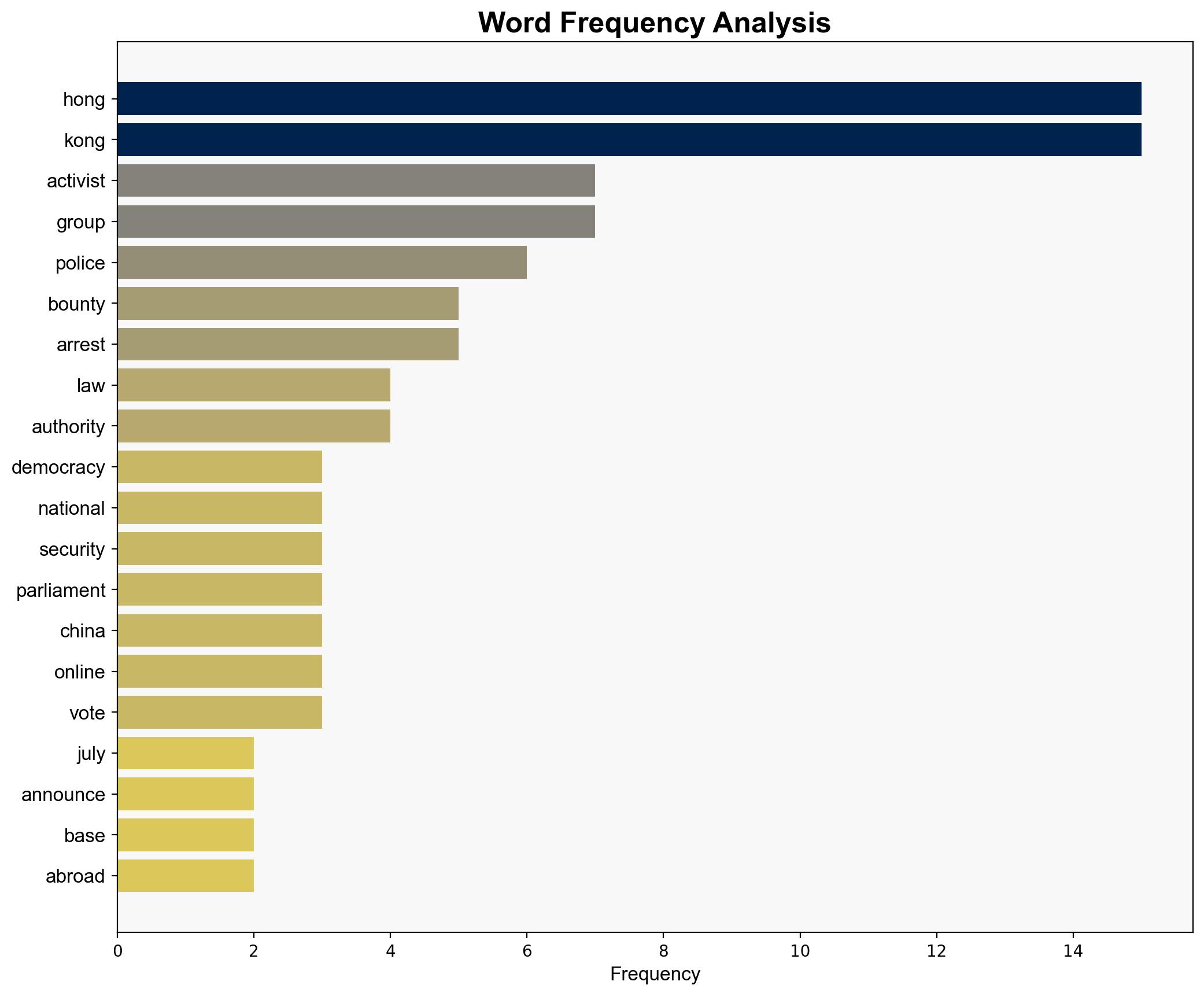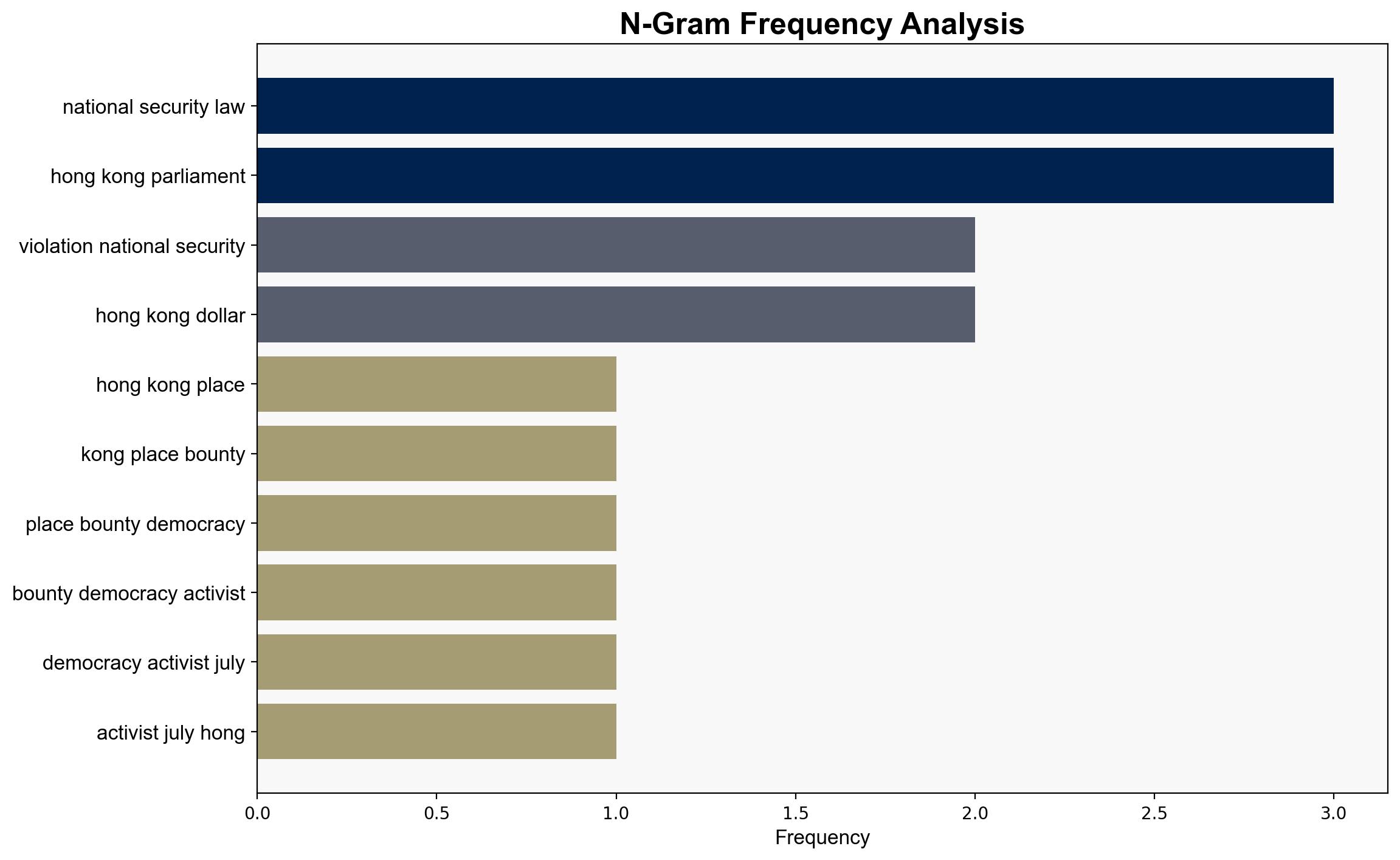Hong Kong places bounty on 19 pro-democracy activists – DW (English)
Published on: 2025-07-25
Intelligence Report: Hong Kong places bounty on 19 pro-democracy activists – DW (English)
1. BLUF (Bottom Line Up Front)
The Hong Kong authorities’ decision to place a bounty on pro-democracy activists is a strategic move to suppress dissent and enforce the national security law. The most supported hypothesis is that this action aims to deter external support for pro-democracy movements and consolidate control over Hong Kong. Confidence level: High. Recommended action: Monitor international responses and assess potential impacts on regional stability and foreign relations.
2. Competing Hypotheses
1. **Hypothesis A**: The bounties are primarily a domestic strategy to deter internal dissent and strengthen Beijing’s control over Hong Kong.
– **Supporting Evidence**: The national security law’s imposition and previous crackdowns on dissent align with this strategy.
– **Contradictory Evidence**: The focus on overseas activists suggests a broader scope than just domestic control.
2. **Hypothesis B**: The bounties are intended to signal to international actors the consequences of supporting Hong Kong’s pro-democracy movements.
– **Supporting Evidence**: The targeting of overseas activists and the international locations of the group members suggest a message to foreign governments and organizations.
– **Contradictory Evidence**: The primary impact remains on Hong Kong’s internal political environment, questioning the international focus.
Using the Analysis of Competing Hypotheses (ACH) 2.0, Hypothesis A is better supported due to the alignment with ongoing domestic policies and historical actions by Hong Kong authorities.
3. Key Assumptions and Red Flags
– **Assumptions**: It is assumed that the Hong Kong authorities have the capability to enforce these bounties internationally, which may not be feasible without cooperation from foreign governments.
– **Red Flags**: The lack of explicit international responses or condemnations could indicate either tacit acceptance or strategic silence.
– **Blind Spots**: Potential covert support for activists from foreign entities is not addressed in the intelligence.
4. Implications and Strategic Risks
– **Geopolitical Risks**: Escalation of tensions between China and Western nations, potentially impacting trade and diplomatic relations.
– **Psychological Impact**: Increased fear and suppression among pro-democracy supporters in Hong Kong and abroad.
– **Cascading Threats**: Potential for retaliatory actions by foreign governments or increased cyber operations targeting Hong Kong and Chinese interests.
5. Recommendations and Outlook
- Monitor international diplomatic channels for responses to the bounties.
- Encourage dialogue between Hong Kong authorities and international human rights organizations to mitigate tensions.
- Scenario Projections:
- Best: De-escalation through diplomatic engagement and policy adjustments.
- Worst: Intensified crackdowns leading to international sanctions and economic repercussions.
- Most Likely: Continued enforcement of the national security law with limited international intervention.
6. Key Individuals and Entities
Elmer Yuen, Johnny Fok, Tony Choi, Victor Ho, Keung Ka Wai
7. Thematic Tags
national security threats, geopolitical tensions, human rights, regional stability





